Leibniz reflecting on your plight as a being-toward-death or whatever
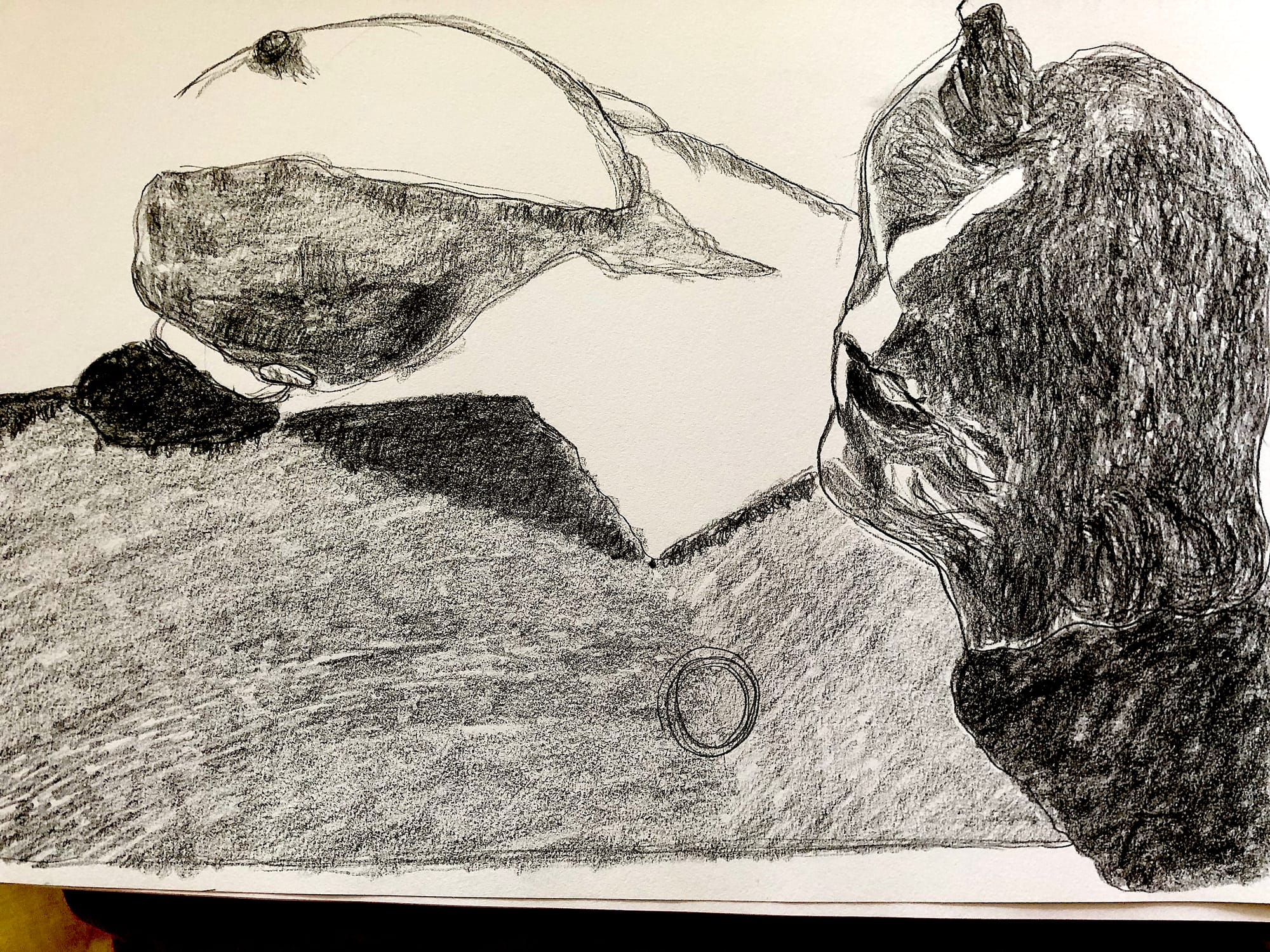
Interview by Richard Marshall

'Leibniz manages to hold onto what at least he takes to be a variety of pure mechanism, while also accounting for the evident respects in which horses and fish and so on are quite different from clockworks. He does this by arguing that their structure is “mechanical to infinity”, with no possible lower limit to their decomposition, in contrast with a clock where you remove a gear or two and already you no longer have a clock at all but just a pile of pieces of metal.'
'When 20th-century anthropologists asked Polynesian islanders why they thought themselves superior to white people, the answer was that we the Polynesians have kastam while white people do not: but the very word they were using was a deformation of the English word ‘custom’, which had been imported by the anthropologists in the first place. I strongly suspect Pinker uses ‘reason’ much the way the islanders were using ‘kastam’: as a je-ne-sais-quoi that is supposed to make us special somehow.'
'Both the mechanical and the algorithmic models of the human being are impoverishing, but the algorithmic one is particularly so, in unprecedented ways, as it externalizes responsibility for self-cultivation. It is under these circumstances that the commandment to ‘Know thyself’ begins to be interpreted, as we already see in hardcore tech-bro culture, as if it were an injunction to keep track of your heart rate and other vitals with a smart-watch, rather than to examine your own soul or reflect on your plight as a being-toward-death or whatever. '
Justin EH Smith is interested in Leibniz, the intersection between philosophy and the empirical life sciences in the 17th and 18th centuries, with a particular focus on the philosophical problems arising in early modern biological taxonomy and in generation theory and in philosophical anthropology from the 16th to the 18th centuries, in particular the philosophical debates concerning human origins, the nature of human diversity, and the place of human beings in the order of nature. Here he discusses Leibniz, his views on the structure and organisation of bodies, the role of infinity in his work, his empirical research, animal generation, Leibniz as empiricist rationalist, his nominalism, monads and materialism, and then natural science and race, irrationality and rationality, 6 types of philosopher, the internet as addiction, algorithms, lack of democratic oversight, bad universality, and what philosophy is.
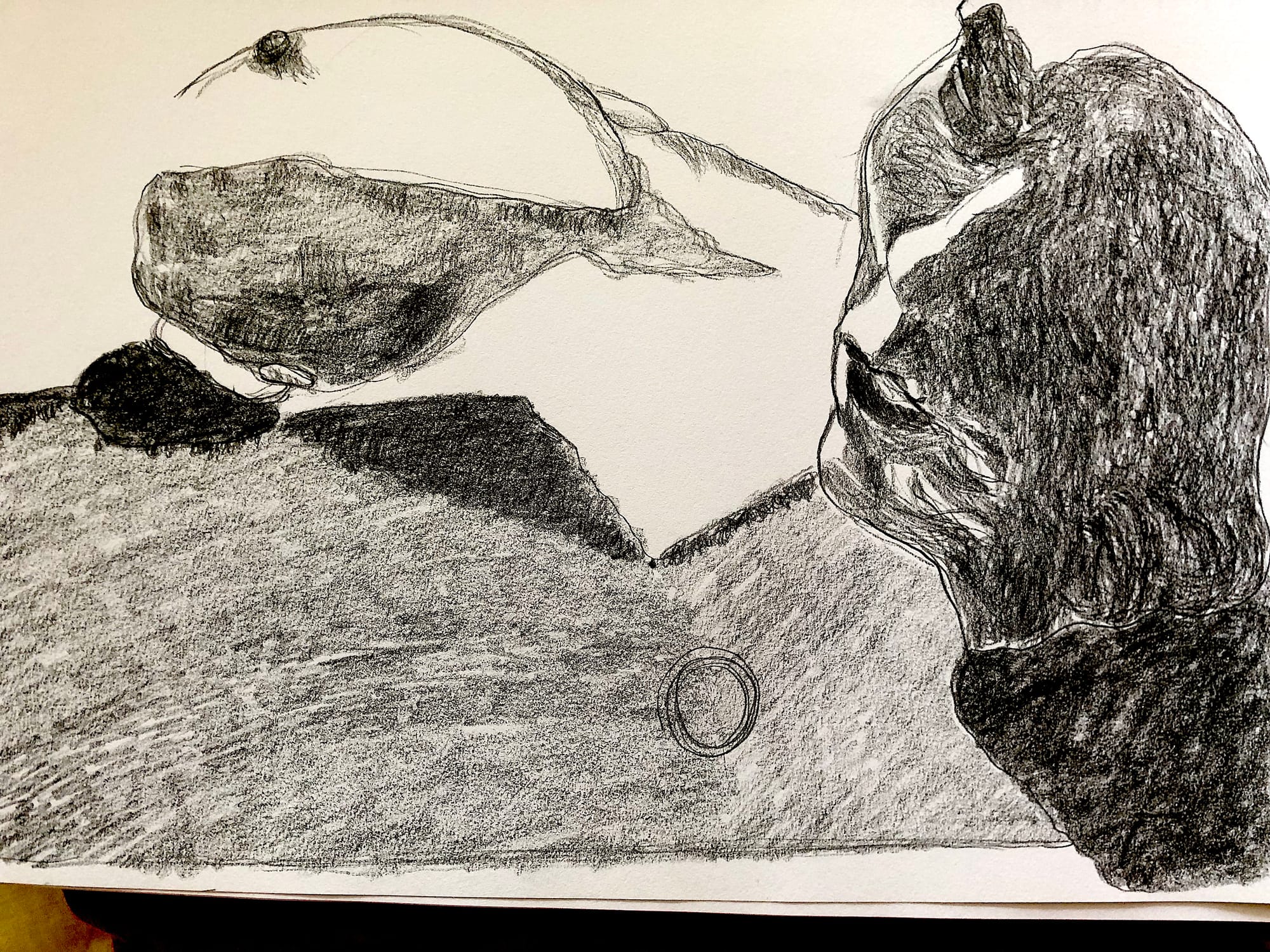
3:16: What made you become a philosopher?
JS: You’ll get very different answers from me depending on how far back in time we start. I can remember being very little, six years old or so, and feeling deeply puzzled by the matter of why there is something rather than nothing. It wasn’t a pleasant feeling; in fact I would describe it as traumatic — it seemed existence itself must be a mistake and an impossibility. Made me cry like a baby, which I practically was. That puzzlement still flares up sometimes, like a childhood illness lying dormant, but when it does it’s less intense, just like everything else at this point.
Less remotely, I was a high-school dropout and so had to do my first college courses at a two-year institution where what was being taught was not exactly at the cutting-edge of research, and was often a fairly extreme misrepresentation of the various disciplines. When I transferred into the University of California, Davis, I only had two more years left to get my degree, and I had a double major in both philosophy and Russian studies with a focus on Slavic linguistics. This means that by the time I graduated, I had in fact taken very few philosophy courses, and was very lucky to have taken most of them with John Malcolm in ancient philosophy, Paul Teller in philosophy of science and logic, and Richard Wollheim in aesthetics and the philosophy of psychoanalysis. I applied to various programs in both philosophy and Slavic linguistics and I pretty much only got into Columbia in the former, and UCLA in the latter. At that point in my life, all I really wanted to do was to learn more, about as many things as possible, and I still knew sufficiently little about philosophy as an academic discipline to be able to maintain the false belief that it would be a good milieu in which to pursue that goal. I wasn’t ready to specialize in linguistics, writing a dissertation on something like the morphosyntax of the verbal prefix vz- in Old Slavonic, and I thought philosophy would let me do something like the opposite of that (also, then as now I hated LA).
I would soon learn that’s not actually how it works, that as a discipline philosophy demands hyperspecialization and guards its boundaries more jealously than any other field —it’s only by keeping its boundaries constantly in view that it can maintain a clear sense of its own identity—, and to be honest I’ve felt out of place in philosophy ever since. The best consolation for this mismatch is that I work on Leibniz, who models the sort of polymathy and intellectual boundlessness that I wish philosophy still valued.
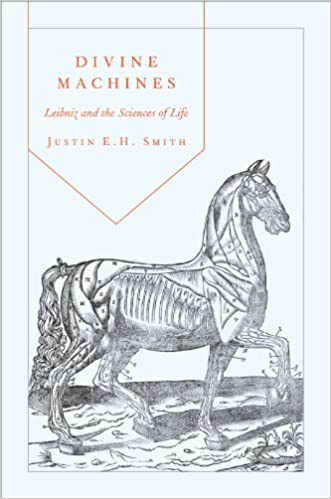
3:16: Ok so let's start with Leibniz . Christian Wolff, Alexander Baumgarten and Johann Bruckner took him to be an abstract theorist of immaterial entities, a logician and metaphysician and you’re not denying that such a reading of Leibniz isn’t possibly correct, but that there’s another Leibniz that needs to be made visible – even if this isn’t a correct version of Leibniz! So what can we learn from his legacies in eighteenth and nineteenth century natural science?
JS: I’m not sure I agree with the assessment of Leibniz’s early reception history. Particularly at Halle, where Wolff was active until the Pietists drove him out, Leibniz seems to have had the reputation principally of a ‘polyhistor’, as the Halle-based Wolffian philosopher Anton Wilhelm Amo described him, a term we may understand as fairly close to ‘polymath’. The publication of the Louis Dutens edition of the Opera omnia in 1768 gave a more complete picture of Leibniz’s true range, but it does not seem to have diminished the image of him as someone with very broad interests, in which logic and metaphysics were well represented but not predominant. Into the 19th century, if we look at authors like Max Müller, we could easily come away with the impression that Leibniz’s primary legacy was that of a pioneer in the methods of comparative linguistics. I think it’s only in the early 20th century, with the double blow of the works of Bertrand Russell and Louis Couturat, that logic and metaphysics became at least primus inter pares among Leibniz’s interests. Russell even dismissed all the things Leibniz wrote about ponds and fish and lily-pads and so on as being insincere, and produced only “for the amusement of princesses”. But those are important correspondences Leibniz was carrying on with Sophie Charlotte of Prussia, to identify one of the princesses by name, and we have no better reason to exclude what he says to her from the corpus of evidence for “what Leibniz actually believed” than any other document he left behind.
3:16: Why do you argue that to understand the changes that took place in Leibniz’s work we should focus on the structure and organisation of bodies rather than focus on a purported ontological shift from realism to phenomenalism about bodies?
JS: I think Leibniz’s phenomenalism is a variety of realism. He expresses this realism most successfully in his late-period writings, and I maintain, in disagreement with Dan Garber and a few others, that what looks like an ontological shift in the late period, roughly from the mid-1690s on, is actually just a terminological shift. Leibniz does indeed drop his earlier talk of “corporeal substances”, but this isn’t because he comes to believe that no real composite beings can result from infinite ensembles of co-perceiving simple substances, but rather because he has found better language for describing corporeal substances: namely, he calls them “animals”, “plants”, “fish”, “worms”, etc.

3:16: How does Leibniz avoid the pitfalls of Cartesian mechanism and post-Cartesian vitalism? He always seems to be in a strange realm of trying to square the circle of Cartesianism (and Hobbesianism?) and Aristotelian models – how do you say he manages this?
JS: My one-word answer is: “infinity”. Leibniz manages to hold onto what at least he takes to be a variety of pure mechanism, while also accounting for the evident respects in which horses and fish and so on are quite different from clockworks. He does this by arguing that their structure is “mechanical to infinity”, with no possible lower limit to their decomposition, in contrast with a clock where you remove a gear or two and already you no longer have a clock at all but just a pile of pieces of metal. This is for Leibniz just another way of saying that living beings (and in the end everything is a living being, but that’s another matter), are “organic”, and here Leibniz is overturning the conventional usage of that term up until his time, as seen, e.g., when just a few years before him Anne Conway writes that “a horse is not a mere organickal body like a clock”. Leibniz reverses this usage, and explicates the organic in terms of infinity. Whether infinity is just a fudge factor for him, a way of avoiding appeal to plastic natures or archaei or other principles that would make living beings so to speak “mechanical+”, without really understanding how it is that infinity does the job, is another difficult question. Ohad Nachtomy is one Leibniz scholar who has done tremendous work in getting to the bottom of this problem.
3:16: How does this focus helps us understand his empirical research on mammalian vivisection, his account of the organic structure of animal bodies and his theory of nested individuality?
JS: As far as I’ve been able to determine, Leibniz only ever performed one natural-philosophical experiment of his own: he fried an egg, and drew some conclusions from this about the special properties of animal proteins. He mostly just relied heavily on the experimental work of others, especially the microscopists such as Malpighi, Leeuwenhoek, and Swammerdam, and the English experimentalists such as Robert Boyle and others who published regularly in the Philosophical Transactions. Leibniz was very good at synthesizing information from multiple sources, taking their small discoveries and doing something large with them. His commitment to preformation, which is so to speak a corollary of the theory of nested individuality, is a good example of this.
Antoni van Leeuwenhoek discovered spermatozoa in 1672. Many natural philosophers presumed at the time that these little ‘worms’ were a product of putrefaction, being generated spontaneously only after arriving outside of the male’s body. Leibniz takes them instead as empirical confirmation of the view that all human beings have existed since the Creation, are traduced down from Adam across the generations, and their conception and birth is in fact only an entry “into the larger theatre”. Mutatis mutandis for other animal species. He claims that this theory follows from the basic truths of philosophy, and that he would have arrived at it even if there had been no microscopes, but he is happy to thank the microscopists for corroborating what he claims to know on a priori grounds.
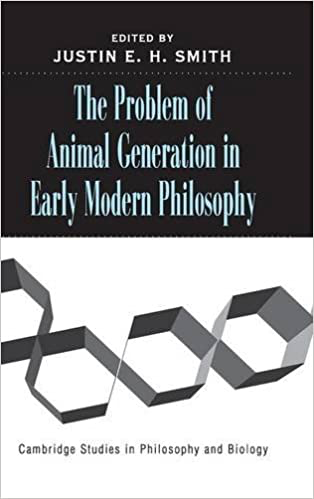
3:16: Why do you think the problem of coming into being, or generation, is one of the fundamental problems Leibniz was grappling with?
JS: Let’s start with Aristotle. I take it that a good deal of pre-Socratic philosophy was preoccupied with the paradoxes of becoming, that, as Parmenides seems to think, you must not say that whatever is not, is. And yet clearly my dog “was not” in, say, the year 1950, and now, well, he kind of seems to be. So then philosophy inevitably becomes preoccupied with animal generation not just as a complicated biological process, but as the key to resolving a tremendous philosophical riddle. Aristotle’s approach is: “Look, we all know that when we talk about ‘beings’, we mean things like dogs and sea-cucumbers, so let us not waste time trying to deny that they have any reality to them” – this, incidentally, is the move that Heidegger would later see as Aristotle’s great sin: forgetting ‘the question of Being’ and resolving it into the several questions of ‘beings’. Let us not deny that dogs and sea-cucumbers have reality, Aristotle thinks, and instead try to see how they get that reality. So he wades out into the tidepool and starts investigating fish milt and so on, not in his time off from his main activity as a philosopher, but as a paradigmatic expression of his self-understanding as a philosopher.
Now, some of my work has been focused on showing that the early modern period is closer in many regards to ancient philosophy than it is to high modern philosophy, which only really becomes high modern when it is academicized by the Germans from the late 18th century on. For example I’ve shown in a somewhat obscurely published piece on Leibniz and Descartes’s “medical eudaimonism” --in 1676 Leibniz is given one day by Descartes’s executor Clerselier to copy his predecessor’s papers, and he uses it not to learn Descartes’s insights in geometry or metaphysics, but to write down his pharmaceutical recipes against constipation-- that the conception of philosophy as primarily “care of the self” that Pierre Hadot describes in late antiquity continues through the 17th century. Similarly, it seems to me that in Leibniz’s lifetime the problem of animal generation still had the obvious philosophical significance that it had had for Aristotle before him.
3:16: Is your version of Leibniz an empiricist? If he is that’s a pretty revisionist position isn’t it given that we usually think of him as a rationalist and they’re usually contrasted with empiricists?
JS: I sometimes say that “rationalist” and “empiricist” are like “republican” and “democrat”: they are pseudo-antonyms, terms that can in fact be complementary elements of a coherent philosophical view, but that come to seem opposed only because of a particular parochial history in which they are taken up. This is certainly the case for Leibniz. With Anne-Lise Rey, I have taken to calling Leibniz an “empiricist rationalist”. He knows on a priori grounds that there is a rational order to nature, and empirical science serves as a way of confirming and deepening our knowledge of that order. This is particularly clear in some of his large-scale proposals for collaborative field science, notably in comparative linguistics and in the study of geomagnetic variation, which in the 17th century remained a major problem for navigators trying to determine the difference between magnetic north and true north. The problem was that the measure of it changed not only in different places on the globe, but also in the same place from one moment to the next. So Leibniz proposed setting up geomagnetic stations across Eurasia, under the patronage of Peter the Great, where measurements would be taken at predetermined intervals, and then compiled, and gradually, he believed, some sort of order would emerge from the disorder – it would have to, because nature is rational, and chaos is only apparent.
3:16: Leibniz is often thought of as a nominalist as well, but you think when we look at his scientific preoccupations this nominalism vanishes don’t you? Can you explain this issue for us and how it helps us understand more clearly Leibniz’s own philosophical preoccupations?
JS: Leibniz is very unambiguous about this question in the New Essays concerning Human Understanding of 1704, which is his extended reply to John Locke’s Essay concerning Human Understanding of 1690. Leibniz agrees with Locke as concerns physical species – he thinks that what we call “lead” or “gold” depends on criteria that we ourselves freely establish, and is not dictated by the world. But he follows this with a clear exception for the case of “the species of plants and animals”. Here, species is determined not by convention, but by what he calls “the generational chain”, or the succession of generations that binds ancestors and descendants in a single continuous line.
To be a finch or a sea-cucumber, then, is to be descended from finch or sea-cucumber parents, quite apart from any consideration of variations in bodily morphology or phenotype. Biological species-membership is for Leibniz an all-or-nothing matter, determined not by convention but by causal history. I don’t see why this should be a controversial account of Leibniz’s view; it doesn’t involve any work of interpretation on my part, I’m just relating what Leibniz says. Yet for some reason many scholars are so committed to the Leibniz-as-nominalist view that they refuse even to absorb this information. The likely reason is that they don’t think biology is important.
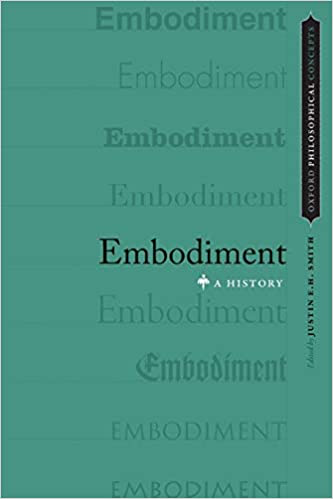
3:16: If monads are all there are, and they are immaterial then how does Leibniz account for there being material bodies? Does your version of Leibniz help us understand how he thought of this problem and again give us a clue as to his overall philosophical preoccupations?
JS: That’s the million-Thaler question. My view, again, is that Leibniz is not an idealist, but a phenomenalist. And because, as he says, phenomena are “well-founded”, this means that in accounting for how they result from monads, we are not explaining phenomenal bodies away, but are simply explaining them. Note that I said bodies “result from” monads, and not that they are “built from” them as you might build a house from bricks or a molecule from atoms. That’s key.
Drawing from several different texts and periods to give a synthetic account of “Leibniz’s view”, even though in fact he was always tweaking it and throwing out old drafts, we may say that indeed there is nothing in the world but simple substances, and in them perception and appetite. But these substances’ perceptions come in varying degrees of confusion and clarity, with clear perception manifesting itself at the dynamical level as active force, and confused perception manifesting itself as passive force. With dynamics as the “bridge science” between metaphysics and physics, we get the further traduction of active force into bodily motion, and passive force into solidity. And so voilà, a world of bodies from a world of perceptions.
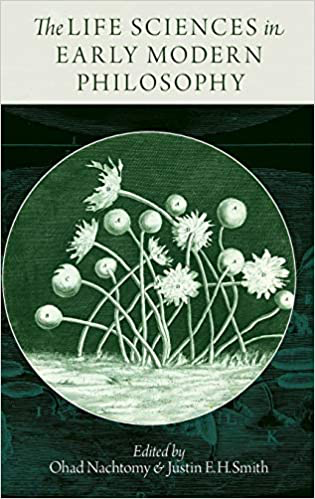
3:16: You’ve argued that it was philosophical interest in natural science of the kind we find in Leibniz and Kant, and the attempt to classify biological entities, that inadvertently led to racial categories that are so toxic. Can you sketch for us how these racial categories came into being and why are they still hanging around even after the science has moved on and no longer uses such classification?
JS: Well into the 18th century it was simply taken for granted by most European philosophers and naturalists that supernaturalist dualism mounted a bulwark against racism, while the naturalization of the human being was the surest path to seeing different human populations as essentially different, either as a result of distinct polygenetic origins, or because of a process of degeneration in which certain populations drift away from the original type of the species as a result of climatic, dietary, and cultural changes.
Nowhere is this clearer than in a peculiar work written by the Jesuit author Gabriel Daniel in 1690, Voiage du monde de Descartes, a sort of satire of Descartes’s philosophical system, including his dualism. In this book Daniel imagines the disembodied soul of an African servant that gets sent by mistake to the moon, which is the preferred haunt of all the dead philosophers. When Descartes’s soul arrives there after his own death, he is the only philosopher who is willing to befriend the African --or, more precisely, the soul of the African--, since, as Gabriel derisively writes, only bodies can have races, while for Descartes the real nature of a person has nothing to do with their body.
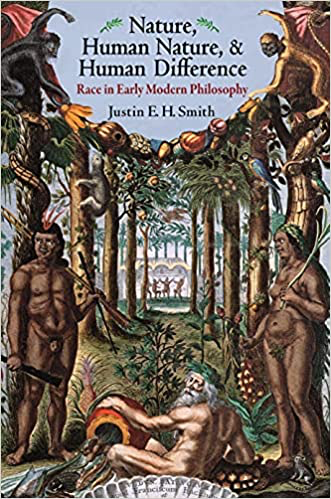
Daniel means this as a criticism of Cartesian dualism, but it inadvertently reveals what was lost --notwithstanding the significant scientific advances this made possible-- in the shift to naturalism, which began in the 17th century but really took hold some decades later with Linnaeus’s insertion of Homo into the taxonomic order of nature alongside other so-called “Anthropomorpha”, and his addition within the Homo genus of further subdivisions based on geography and morphological traits: Homo afer, Homo europaeus, Homo americanus, and so on.
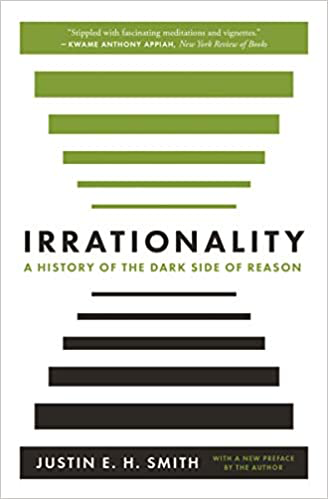
3:16: Rationality is a preoccupation of yours too. Why is it always irrational to eliminate irrationality and promote aggressive reason? Given our contemporary context, with covid deniers and Trumpist/Putinist fascists rising all over the place isn’t there a need to counter these irrational forces or are you saying it’s because of the liberal’s over-application of reason that this stuff is happening, like Adorno and Horkheimer argue, and that irrationality is a result of an inevitable dialectic of enlightenment – kind of a Voltaire vs Rousseau thing happening?
JS: I wrote Irrationality in a way that was intended for a wide non-academic readership, and one of my principal goals there was to offer some resistance against those authors, notably Steven Pinker, who have set up what I take to be a sort of caricature or idol of reason as the distinguishing feature and pinnacle expression of Western modernity.
I think, from a comparative anthropological point of view, the fetishization of reason reduces ultimately to an expression of a society’s ungrounded self-contentment in view of its supposed possession of a unique je-ne-sais-quoi that other societies lack. This is very common. When 20th-century anthropologists asked Polynesian islanders why they thought themselves superior to white people, the answer was that we the Polynesians have kastam while white people do not: but the very word they were using was a deformation of the English word ‘custom’, which had been imported by the anthropologists in the first place. I strongly suspect Pinker uses ‘reason’ much the way the islanders were using ‘kastam’: as a je-ne-sais-quoi that is supposed to make us special somehow. Incidentally, the excessive adoration or fetishization of reason does not itself have a fixed political valence. We think of Pinker-style Enlightenment fandom as “right” or “right-adjacent”, but more recently some of the loudest voices telling us to “Trust the science!” in the pandemic era --i.e., to suspend our critical faculties and submit passively to the expert authority of scientists, because science is always an expression of reason-- are at least culturally on the progressive left.
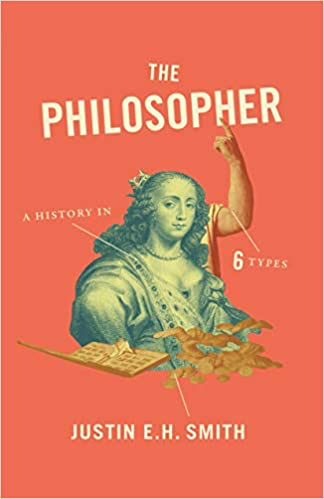
3:16: You’ve written about classifying philosophers into six types – the curiosus or natural philosopher, the sage, the gadfly, the ascetic, the mandarin and the courtier. Presumably Leibniz is a courtier! Could you sketch for us (and name examples) of what each of these classifications intends to identify, and then say why you think this classification is important and helpful in understanding the reach of philosophy and its history?
JS: Let me start by saying that these types may overlap with one another, and they are not meant to be exhaustive; I didn’t transcendentally deduce them like Kant’s categories or anything. I think I’ll let readers get the book for themselves to see what work each of the types is doing. I’ll add that my favorite, and I think I do not exactly hide this in the book, is the Curiosus, or Curiosa, and I model my portrayal of her on the early modern natural philosopher Margaret Cavendish. Hegel is the ultimate Mandarin – a puffed up Herr Professor whose words derive their authority largely from his institutional position, as Kierkegaard clearly saw of him and did not hold back from lampooning. I modelled the Courtier on Jan Sten, a Latvian philosopher and member of the Soviet communist party who was retained as Stalin’s personal tutor when the generalissimo realized he was having trouble mastering the finer points of Hegelian dialectics. The arrangement worked well for a while, until Stalin got frustrated and had Sten executed in 1937. Similar stories lie behind the portraits of the other philosophical types, some of them more clearly grounded in actual historical figures than others.
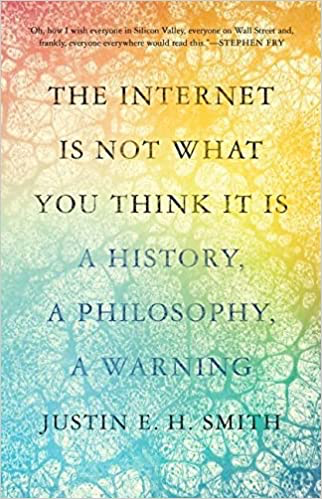
3:16: Your new book about the internet surprisingly links this ubiquitous technological innovation to Leibniz. You say his spirit prevailed from 1678 until 2011 but has not fallen into abeyance. He was too optimistic you say. So what’s the link you make between Leibniz’s metaphysics and the internet – and where in particular did his optimism lie?
JS: I chart the longue-durée history of optimism about computing --which is to say about the mechanical outsourcing of some of our reasoning operations-- roughly from the moment Leibniz suggested that someday soon we will be able to say Calculemus! [Let us calculate!] whenever we are about to go to war or are stuck in any dead-end of disagreement between two parties, and will be able through our ‘calculation’ to resolve all conflicts and bring out world peace, to sometime in the previous decade, perhaps when the Twitter-fueled Arab Spring revolutions descended into bloodbaths, or the moment we realized big data were being manipulated to push Brexit through, or to thrust a common internet troll into the office of president of the United States.
Sometime between 2010 and 2016, anyhow, it became crystal clear that the internet was delivering on none of the earlier hope that it might be able to facilitate or enhance our powers of deliberation on matters of social and political importance. The real tragedy with social media in particular is that we are constrained to use them as if they were a viable venue for the pursuit of deliberative democracy, when in fact what they are is something more like a deliberation-themed video game, in the same way that Grand Theft Auto is a stolen-car-chase-themed video game.
3:16: As you say, you’re wanting to say where it all went wrong and you say to do so we need to first understand the ontology of the internet. Why is ontology so important to you in respect of understanding the internet?
JS: Perhaps ‘ontology’ is too big a word here; I was simply thinking when I used it of the project of ‘historical ontology’ as Ian Hacking understands it. What I really want to do is to figure out what more fundamental thing we human beings are doing when we are using the internet. If I were writing a book on the philosophy of cinema (such an antiquated undertaking!), I would consider the way this art-form evolves out of such things as the 19th-century shadow-play, the realist novels of Flaubert, the conventions of storytelling since deepest antiquity, and so on. Similarly with technologies of telecommunication: there’s something we were already doing before any particular technology existed that made it make sense for us to will that new technology into existence.
More deeply, in nature as well there are many networked systems with which, whether by coincidence or by real analogies in the evolution of natural and artificial systems, the internet has some significant features in common. So to consider the ontology of the internet is to place it within a broader category of systems or entities that also includes such things as fungal growths and subterranean tree-root networks.
3:16: Addiction, algorithms, lack of democratic oversight, and universality are the four features of the internet that grounds your pessimism which is not, as you say, a technophobe response to new technology but an attempt to bring a cooler sort of analysis to the discussions about the pros and cons of technological innovations and developments. Can you sketch for us what you understand to be the problems with these four things and how the ‘crisis of attention’ is a key to understanding them?
JS: It seems to me the first and third of these are prima facie bad; the fourth is bad conditionally – if something that’s good is everywhere, that’s good, but if a bad thing is everywhere, that’s bad. So let’s try to think for a second about why the ubiquity of algorithms in our lives is bad.
Algorithms are helpful tools for solving specific problems. Even before the era of machine-based computing, the development of algorithmic procedures was tremendously important in human history. The problem is that these are only ever approximations of human decision-making, and when we allow algorithms to replace our own actual decisions --for example as to which song we will listen to next, or which article link we will click on next-- we are abnegating a key responsibility we have to ourselves to keep ourselves human. This ‘staying human’ may indeed involve ‘worse’ choices than what the machines would have come up with – for example, songs that are less similar to the songs we just heard. But what’s worse for a machine can sometimes, demonstrably, be better for a human being. The algorithmic revolution in technologies that used to be merely mechanical --e.g., Spotify replacing a record collection-- was only the beginning of a process that in a second phase reflects the algorithmic image back upon us and shapes our own self-understanding, much as the man-machine metaphor captured human imaginations for several centuries over the course of the modern period.
Both the mechanical and the algorithmic models of the human being are impoverishing, but the algorithmic one is particularly so, in unprecedented ways, as it externalizes responsibility for self-cultivation. It is under these circumstances that the commandment to ‘Know thyself’ begins to be interpreted, as we already see in hardcore tech-bro culture, as if it were an injunction to keep track of your heart rate and other vitals with a smart-watch, rather than to examine your own soul or reflect on your plight as a being-toward-death or whatever.
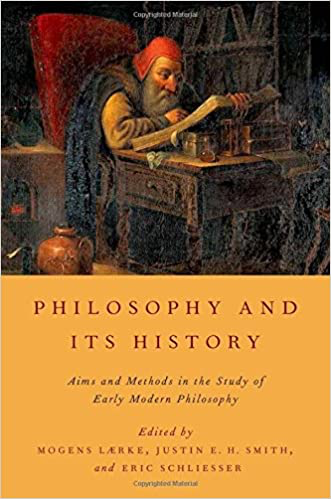
3:16: You recently asked what philosophy is and your interlocutor, Agnes Callard, offered the idea that it was the working out of a complaint. You in the end were interested in her proposal but rejected it as a definition. So to end with, what do you think a good definition of philosophy is, and according to your 6-fold classification of philosophers, into which category would you place yourself?
JS: I think Agnes was just throwing something at the wall to see if it would stick. Obviously some philosophy might be complaining (see Schopenhauer’s “On Noise” for a classic of the genre), but some philosophy is also offered up in a spirit of joy, and in any number of other moods and registers in between. As for where I fit in the sixfold scheme, I’m probably a hybrid of the Curiosus and the Courtier, to be honest. I still just want to learn about as many things as possible; that mania’s only gotten worse, in fact, since the day I mistakenly went off to grad school in philosophy. And so I take people like Margaret Cavendish and Aristotle as my models. As the latter said, riffing on Heraclitus as he held up a sea-cucumber while standing knee-deep in a tide pool on Lesbos: “Here too dwell gods.”
That remains my basic disposition in philosophy, too: no matter what you’re paying attention to, if you’re really paying attention to it, you’re doing your job as a philosopher. At the same time, I’ve got to admit that my primary concern these days is paying the bills and securing a reasonably comfortable retirement, and to that end I would happily sell or at least rent whatever aura of wisdom I can conjure to some Silicon Valley overlord, if the price were right. Of course, there are some boundaries I would not cross. I would not help to legitimate what I inwardly believe are noxious ideas, but I would at least flatter the vanity of those in power by mouthing the clichés they want to hear, just like Leibniz did for Peter the Great, if not like Jan Sten presumably did for Stalin (again, I have my limits).
All of us who have academic positions prudently hold back a good portion of our real thoughts, and are thus Courtiers to some extent, though for much lower pay than if we were doing it for tsars or for tech billionaires. Or at least I hope we are, because the only other explanation is that most people with academic jobs are in fact as limited as they’re required to appear!
3:16: And finally, for the readers here at 3:16, are there five books other than your own that you could recommend that would take us further into your philosophical world?
JS: This is hard without some further constraints. These days I read mostly history, anthropology, linguistics, and literature – while also of course keeping up with the new publications in my small subdomain of early modern history of philosophy. I also read a lot of early modern primary sources that are difficult to classify. Are for example Thomas Browne’s Pseudodoxia Epidemica or Robert Burton’s Anatomy of Melancholy works of ‘philosophy’? I don’t know, but I read them, and as I read them I feel like I’m deepening my understanding of the philosophical landscape of their era. Same thing when I read Proust, or the notebooks of Paul Valéry. So this is a hard question for me. I think what I’ll offer here is a list of five books, squarely and uncontroversially within the field of philosophy, that I read as an undergraduate and that convinced me, for better or worse, that studying philosophy might be a good idea. Here goes:
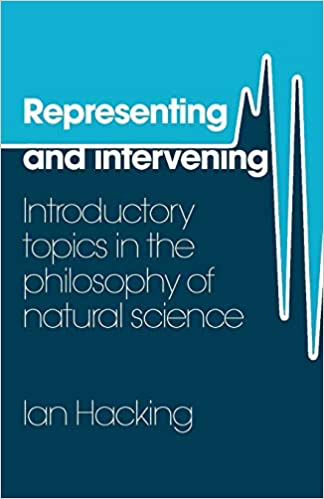
1. Ian Hacking, Representing and Intervening: Introductory Topics in the Philosophy of Science
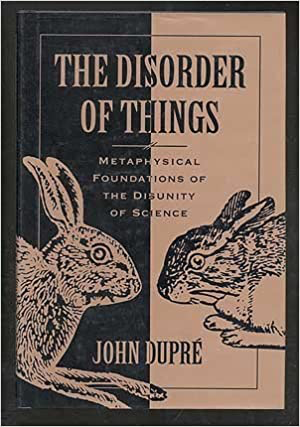
2. John Dupré, The Disorder of Things: Metaphysical Foundations of the Disunity of Science
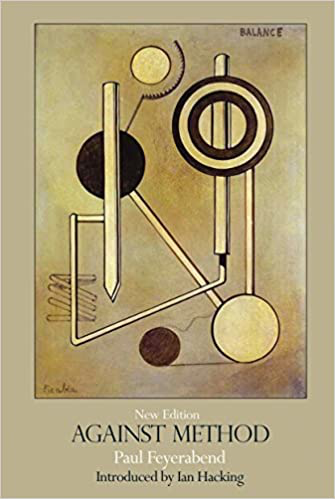
3. Paul Feyerabend, Against Method
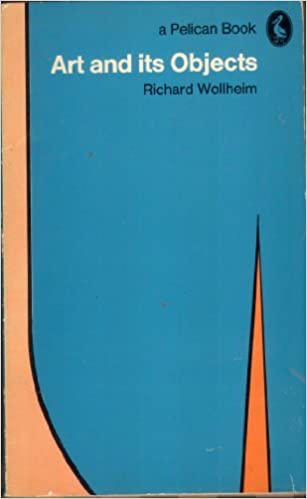
4. Richard Wollheim, Art and Its Objects

5. Gaston Bachelard, La formation de l’esprit scientifique. Contribution à une psychanalyse de la connaissance objective

ABOUT THE INTERVIEWER
Richard Marshall is biding his time.
Buy his second book here or his first book here to keep him biding!
End Time series: the themes
Huw Price's Flickering Shadows series.
Steven DeLay's Finding meaning series
Josef Mitterer's The Beyond of Philosophy serialised
NEW: Art from 3:16am Exhibition - details here